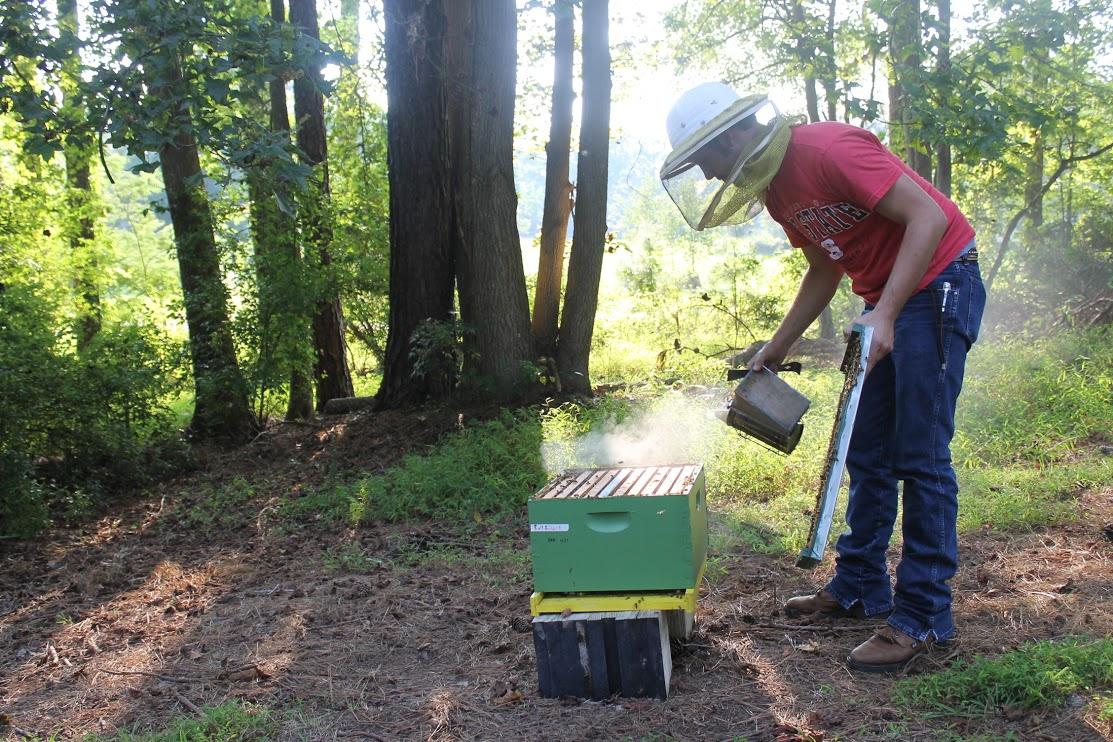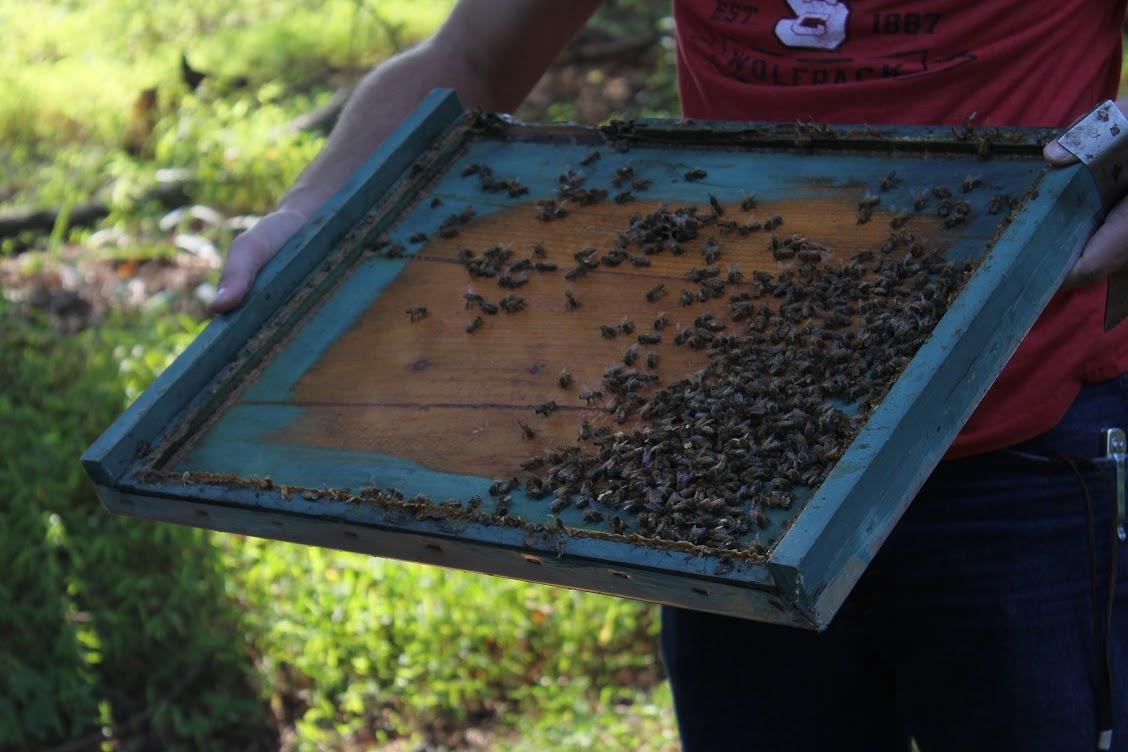Consumers may be aware of the human labor required to produce goods such as coffee, fruit, cotton clothing and chocolate, but few realize the important role bees play in the making of these and many other common products.
Educating the public is one of the main goals of the Beekeepers Club at NC State. Its conception was inspired by the popular Introduction to the Honey Bee and Beekeeping class taught by entomology professor David Tarpy. When Sarah Edwards, co-vice president of the club and a junior studying human biology, signed up for the class, she wasn’t quite sure what she was getting herself into.
“Being honest, I was scared of bees until I took the class,” Edwards said. “But it’s one of those things where you learn about something, and it takes the fear away.”
Edwards took the beekeeping class alongside club secretary Mally Dietrich, a junior studying communication, and the other co-vice president, Mitchell Stephens, a senior studying animal science. After the class ended, Edwards and Dietrich decided they wanted to start a club, only to discover that Stephens and his former roommate Jacob Gantt, a second-year agriculture student studying agribusiness management, were trying to get one up and running simultaneously. The two pairs joined forces, and the Beekeepers Club was formed in April.
“People keep giving us bee-related home decor,” Edwards said, holding up a pair of mugs with bee wing-shaped handles. “We’re known as ‘the bee people’ now. It’s cool.”
Edwards and Dietrich are more focused on the education aspect of bees. Bees are responsible for approximately $286 million worth of crops in North Carolina yearly, according to a 2007 study conducted by the NC State entomology department. Yet despite their importance, the bee population has been decreasing in numbers. The United States Department of Agriculture states that the popHeavulation of managed honey bee colonies in the U.S. has decreased from 5 million to 2.5 million since 1940.
“We’d love to educate people based on the knowledge that we have about honeybees and similar insects,” Dietrich said. “This is a really, really extreme situation.”
Gantt, the club’s president, has a more personal connection to honey bees. A third-generation beekeeper on both sides of his family lineage, Gantt was taught the ways of the trade by his dad, who, in turn, learned from his own father.
“Really, bees are just like any other livestock,” Gantt said. “You’ve got to feed them, you got to treat them, you got to make sure they’re healthy.”
The club plans to begin with basic bee education and then later take members into the field. It plans to have tentative topics which include parts of the hive, pest control, bee trivia and even a honey tasting event.
“We had an interest meeting at the end of the last semester, and the array of experience is interesting,” Edwards notes. “We have some people who have tons of hives; they’ve been keeping bees forever. And other people have just heard about the club and thought, ‘that sounds fun, let’s try it!’”
Later in the fall, the club plans to visit beehives and apply what the members have learned firsthand. The club doesn’t have its own hives yet, though ultimately hopes to obtain one. In the meantime, the club has teamed up with NC State’s Agroecology Education farm and has plans to get involved with the bees there.
“A lot of people … they’re not really interested in getting technical or having their own bees, but they want to know more about bees and how they can help,” Dietrich said. And in this situation, knowledge is just as important as application.
The club’s first meeting of the fall semester is planned to take place Thursday.









